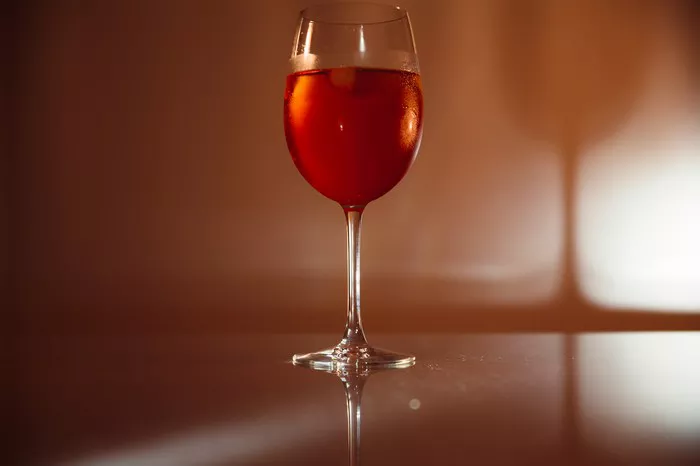In recent years, the demand for zero alcohol wine has surged, driven by health-conscious consumers, designated drivers, and those simply seeking a non-alcoholic alternative. But have you ever wondered how this alcohol-free elixir is crafted? Delving into the intricate process reveals a fascinating journey from vineyard to bottle. Let’s uncork the secrets and explore the meticulous steps behind the production of zero alcohol wine.
Grapes: The Foundation of Zero Alcohol Wine
At the heart of every fine wine, including its alcohol-free counterpart, lies the humble grape. The journey begins in the vineyard, where vintners meticulously cultivate grape varieties specifically destined for zero alcohol production. These grapes often possess lower sugar levels, essential for crafting wine without the fermentation process that naturally produces alcohol. Varietals such as Chardonnay, Merlot, and Cabernet Sauvignon are commonly chosen for their robust flavors and suitability for alcohol extraction techniques.
Harvesting and Crushing: Paving the Way for Alcohol-Free Elixir
Once the grapes reach optimal ripeness, skilled hands harvest them with care. Timing is crucial; grapes must be picked at the peak of flavor development to ensure the best quality juice for zero alcohol wine production. Following harvest, the grapes undergo a gentle crushing process to extract their precious juice while preserving delicate flavors and aromas. This juice forms the cornerstone of zero alcohol wine, carrying the essence of the vineyard into every bottle.
Alcohol Extraction: Eliminating Spirits, Preserving Essence
The pivotal step in crafting zero alcohol wine is the removal of alcohol from the grape juice. Various methods exist for achieving this, each aiming to eliminate alcohol while retaining the wine’s character and complexity. One common technique involves vacuum distillation, where the wine is heated under reduced pressure to lower its boiling point, allowing alcohol to evaporate at a lower temperature than water. This gentle process minimizes heat exposure, safeguarding the wine’s integrity.
Reverse Osmosis: Precision in Alcohol Removal
Another prevalent method for alcohol extraction is reverse osmosis, a precise filtration process that separates alcohol from the wine through selective permeation. In this method, wine passes through a semipermeable membrane under pressure, separating alcohol molecules from the remaining components. The result is a concentrated alcohol stream and alcohol-free wine, allowing vintners to adjust alcohol levels with precision while preserving the wine’s nuanced flavors.
Spinning Cone Column: Whirling Innovation in De-alcoholization
The spinning cone column (SCC) represents a cutting-edge technology revolutionizing alcohol extraction in winemaking. This innovative system employs centrifugal force to separate alcohol from wine, utilizing multiple spinning cones within a vacuum chamber. As wine flows down the cones, volatile compounds, including alcohol, are extracted, leaving behind a non-alcoholic beverage rich in flavor and aroma. The SCC offers unparalleled control over de-alcoholization, allowing vintners to tailor products to meet consumer preferences.
Cold Filtration: Chilling Out Alcohol
Cold filtration emerges as a gentle yet effective method for alcohol removal in zero alcohol wine production. This technique relies on chilling the wine to temperatures below its freezing point, causing alcohol and water to form ice crystals while other components remain liquid. Through filtration, these ice crystals, laden with alcohol, are separated from the wine, leaving behind an alcohol-free beverage ready for bottling. Cold filtration preserves the wine’s delicate structure and flavor profile, ensuring a high-quality end product.
Blending and Flavor Enhancement: Crafting Complexity sans Alcohol
After alcohol extraction, vintners may employ blending techniques to refine the flavor profile of zero alcohol wine. Blending allows them to balance acidity, sweetness, and fruitiness, creating a harmonious palate reminiscent of traditional wines. Additionally, natural flavor enhancers may be introduced to compensate for any loss of aroma or complexity during de-alcoholization. These additives, derived from fruits, herbs, or botanicals, contribute depth and character to the final product, elevating its sensory appeal.
Maturation and Aging: Cultivating Elegance in Alcohol-Free Elixirs
Just like their alcoholic counterparts, zero alcohol wines benefit from maturation and aging to develop depth and complexity. Following blending, wines may be aged in stainless steel tanks or oak barrels, allowing flavors to integrate and evolve over time. This maturation process imparts subtle nuances to the wine, enhancing its bouquet and mouthfeel. Though shorter than traditional aging periods, this stage is crucial in refining zero alcohol wines into sophisticated libations worthy of discerning palates.
Bottling and Packaging: Presenting Zero Alcohol Wine to the World
As the journey from vineyard to bottle nears its conclusion, zero alcohol wines are carefully bottled and packaged for distribution. Clean, sterile bottling environments minimize the risk of contamination, preserving the wine’s purity and freshness. Labels proudly proclaim the absence of alcohol, catering to a growing market of health-conscious consumers. From elegant glass bottles to convenient single-serve containers, packaging options abound, ensuring zero alcohol wines reach consumers in style and convenience.
Conclusion: Crafting Excellence in Every Sip
In the world of winemaking, the quest for perfection knows no bounds. From vine to cellar, each step in the production of zero alcohol wine reflects a commitment to excellence and innovation. Through meticulous craftsmanship and cutting-edge technology, vintners transform grapes into alcohol-free elixirs that captivate the senses and delight the palate. So, the next time you raise a glass of zero alcohol wine, savor not just the flavor, but the artistry and dedication woven into every sip. Cheers to the remarkable journey of crafting zero alcohol wine—where innovation meets tradition, and quality knows no compromise.


